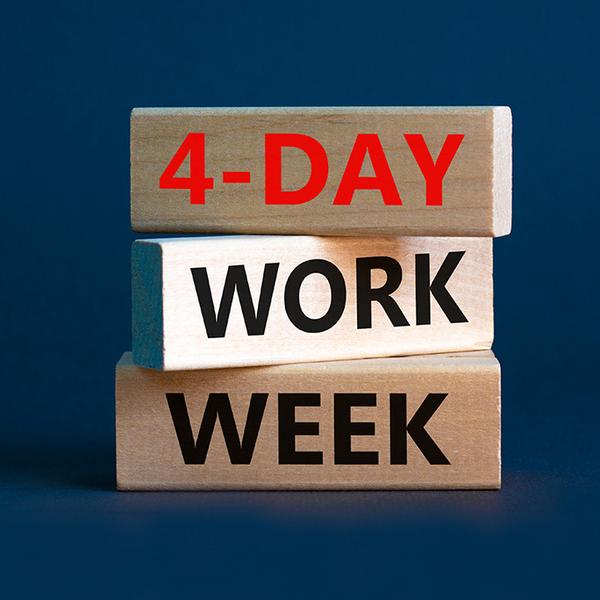
ICTU, A Shorter Week And The Power Of The Working Class
2 July 2025
The ICTU Biennial Delegate Conference (BDC) is taking place this week. Union leaders understand the power of collective labour. The unions understand that power so well that they keep it bottled up. Much of the time, ICTU unions function as an arm of the state. Occasionally, they “open the bottle” so as to conjure up the spectre of the power of collective labour but they’re never serious.
Decades of “Partnership”, the legacy of the 1990 Industrial Relations Act, the temptation of a career as a suit-wearing, Merc-driving bureaucrat earning wages north of €120,000 all combine to keep the unions tame. To put it another way, they carry on in their primary role of taming the workers!
But a shorter working week is no big ask, is it?
Do you like your job? It’s not a serious question. Most people don’t. For many, work is an imposition. It’s what we have to do to survive when we would much rather be doing anything else. Writing, in 1847, Karl Marx understood the reality facing every worker: “He works that he may keep alive. He does not count the labour itself as a part of his life; it is rather a sacrifice of his life.”
What this is about is time. Workers are not slaves but they cannot spend their time as they please. What makes the worker a worker and not a boss is that the worker has to sell their time to the boss in exchange for a wage. If the worker does not do this, starvation and poverty will follow. What makes the boss a boss is that they already have money to buy the worker’s time in wages. This is so the worker can produce enough wealth to replace both (i) the wages they received and (ii) produce a profit for the boss.
This relationship is fundamental to the capitalist system. It is a relationship of pure exploitation. In Capital V 3, Marx highlighted a reduction in the working week as a step on the road to freedom from that exploitation: “The shortening of the working-day is its basic prerequisite”.
Why should the worker have to work anything more than the time needed to replace their wages? Well, if every worker stopped at precisely the point at which they produced enough to pay back the wages that the boss gave them, no profits would be made. If no profits are made then the bosses would go out of business.
To put this another way, workers have enormous power. Potentially, they have all the power in the world. Potentially, the collective power of labour is enough to overthrow the capitalist system and to reorganise production democratically and so that human needs are met in a planned, rational manner. In other words, workers could replace capitalism with socialism.
Standing in their way is the state, the courts, police, civil service and so on, that protect the wealth and power of the capitalist class. The capitalist class accumulates and commands the wealth, which Marx reminds us, is in every case produced by workers’ labour power. It would be right and just for workers to take what is in reality, theirs.
How can this be achieved? Trade unions could help, if they were willing to fight.
Today, 2nd July 2025, a motion (number 17) was brought to the floor of the ICTU Biennial Delegate Conference calling for a reduction in the working week from 40 to 32 hours with no reduction in pay. The motion was passed. So it was no big ask after all.
Of course, once the ICTU delegate meeting rolls up its shutters and the whiff of revolution fades away, a four day working week will remain a motion passed at Congress. That is, unless grassroots workers in the main ICTU unions push back and force their leadership to campaign on the issue.
A four day working week is a very minimal demand. As cited by David Graeber, in his great book Bullshit Jobs, J. M. Keynes predicted nearly one hundred years ago that technology would make a 15-hour week possible by the end of the 20th Century. That would make a two-day week!
When you consider, too, the potential of Artificial Intelligence to make production even more efficient, it seems that the demand for a four-day week is incredibly modest.
The mention of AI should be ringing alarm bells. AI is a threat to workers’ jobs. But that is only because of the capitalist economic system that imprisons workers, forces them to sell their precious time just so they can keep eating.
The fundamental problem is not the efficiency of the productive process. It is who owns and controls the means of production (the factories, offices and machines). A reduction in the duration of the working week in isolation runs the risk of putting downward pressure on wages, increasing exploitation, and putting people out of work. We want shorter hours, no reduction in pay.
But it is not enough to just reduce the duration of the working week. It is not enough for ICTU to pass a motion calling for it. This is about workers setting themselves free. As it stands, workers are compelled to sell their time, their labour power, to survive. No wonder so many people despise their jobs.
It is in the nature of the boss, the capitalist, to keep workers locked into the dependency of wage slavery. They will roll back on any concession - including a reduced working week - unless they are met with greater force.
Make no mistake, the task is not easy. Workers need to push their unions to campaign for a reduced working week. But we need to push even more. We must take every opportunity to forge working class solidarity on issues that affect all workers. Working class people lack confidence in 2025. However, by fighting on housing, healthcare, childcare, nursing homes and so on in the present, we can build.
Why are we building? The truth is, a reduced working week is a demand that’s only realisable under socialism. Capital, with its vampire like hunger for profit, will always tend towards increasing the duration and intensity of labour.
Our task is to build for and fight for a planned socialist system where work is not defiled by the profit motive. Under a planned economy we could reduce what Marx called “the realm of necessity” - the work that needs to be done to produce everything we need - and increase the “realm of freedom” - where workers can develop themselves. As Marx wrote:
“The realm of freedom actually begins only where labour which is determined by necessity and mundane considerations ceases… Just as the savage must wrestle with Nature to satisfy his wants, to maintain and reproduce life, so must civilised man, and he must do so in all social formations and under all possible modes of production… Freedom in this field can only consist in socialised man, the associated producers, rationally regulating their interchange with Nature, bringing it under their common control… But it nonetheless still remains a realm of necessity. Beyond it begins… the true realm of freedom, which, however, can blossom forth only with this realm of necessity as its basis. The shortening of the working-day is its basic prerequisite.”
 RED NETWORK
RED NETWORK